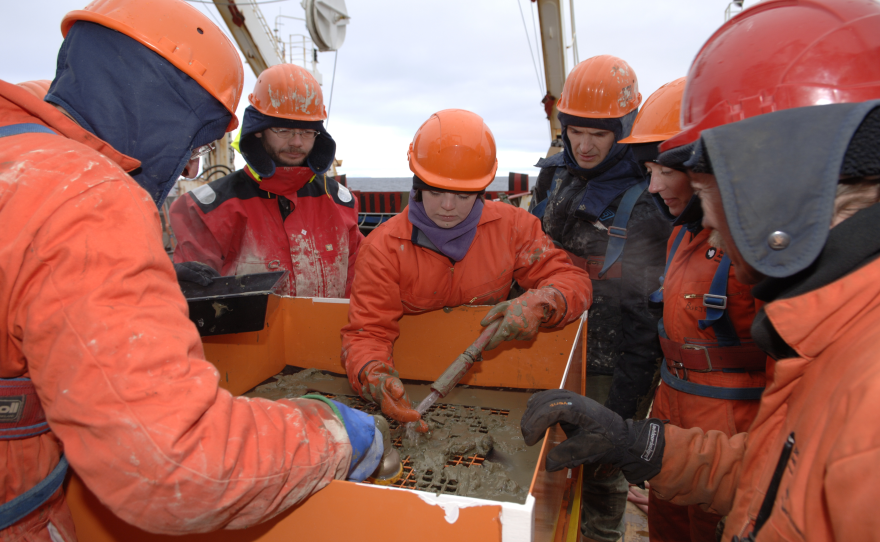– A University of West Florida professor will travel with a team of international scientists to Antarctica to study how marine animals that live near the seafloor are being affected by climate change.
Dr. Alexis Janosik, an assistant professor in the Department of Biology, will leave Nov. 16 to sail with the British Antarctic Survey. She will spend almost a month on the research ship RRS James Clark Ross. Janosik will be the only researcher from the U.S. to take part in the research cruise.
“Our initiative is to look at how benthic communities have shifted and are shifting as a result of climate change,” Janosik said.
Benthic communities, which include sea stars, sea urchins and other organisms that live near the seafloor, typically thrive in Antarctica, Janosik said. However, she said no place on earth has been altered more by climate change in recent years.
“It’s one of the fastest changing places on our planet in terms of climate change,” she said. “These are communities that have been evolving to freezing, stable conditions, very cold, for more than 500 million years. And suddenly humans come on the scene and we’re shifting things drastically with climate change. Antarctica is warming faster than anywhere else on the planet in the last 50 years. And this is a place where a degree or two really matters; it’s a big deal for these organisms that are not used to these warmer temperatures. How they will adapt, can they move, and if they cannot move ultimately they will perish – that’s the main initiative of this particular cruise.”
Janosik’s research in Antarctica will also focus on the impact that microplastics – small plastic particles less than 5 millimeters in size – have on marine organisms. Microplastics come from larger pieces of plastic debris that are broken down by chemicals and wave action, from microbeads, and from synthetic fabrics.
“So every time we wash our fleeces or our shirts that are made of synthetic fabrics, there are small plastics that are washed into the ecosystems,” Janosik said. “And there is no place that’s untouched on our planet from microplastics. If we were just to filter one liter of seawater we would probably recover hundreds of microplastics.”
Janosik said many organisms in marine waters are filter feeders, meaning they filter water to eat their food.
“And along with the food they are also filtering microplastics,” Janosik said. “I’m interested to see how that’s impacting these organisms, and are there specifically genetic impacts as a result of those microplastics.”
Janosik’s research trip is being funded by UWF’s Office of Research and Sponsored Programs, the Hal Marcus College of Science and Engineering and the British Antarctic Survey.
Janosik will document her research at her blog, Janosiklab.com/blog, http://icebergsjcr.blogspot.com/, and on Twitter at @Icebergs_jcr. She also plans to publish their research in a scientific journal.
The research cruise will be Janosik’s fourth trip to Antarctica.
“It’s a place that’s stunning and beautiful and remote, and a place that not very many people think about on a day-to-day basis,” she said. “But it’s a place that for me, monopolizes a lot of my time and thoughts. And it’s a place where I truly feel humbled by nature.”
This article is part of a collaboration between WUWF and the UWF Division of Research and Strategic Innovation.






